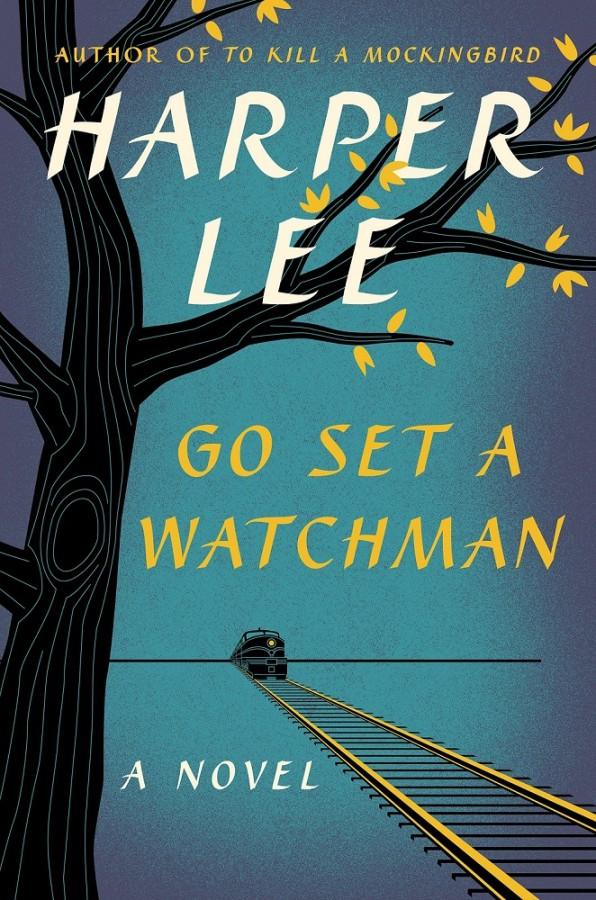Review: “Go Set a Watchman” by Harper Lee
courtesy of washingtonpost.com
Cover of Harper Lee’s new book ‘Go Set A Watchman’
July 20, 2015
The only man she had ever known to whom she could point and say with expert knowledge, “He is a gentleman, in his heart he is a gentleman,” had betrayed her, publicly, grossly, and shamelessly.
I was one of many students who read Harper Lee’s “To Kill a Mockingbird” as a part of school required reading, and viewed Atticus Finch as a hero. I tried not to glorify his character, but Gregory Peck’s portrayal of him in the movie made it difficult, because of how perfect he was in the role. So I’m not ashamed to admit that I, like many readers, wanted to become a lawyer because of Atticus. You can probably imagine my utter devastation when I read an article in The New York Times, the first to review Lee’s newly published novel, “Go Set a Watchman,” and discovered that my beloved Atticus was a racist.
Despite the fact that I vowed that I would never read “Go Set a Watchman” because of the novel’s contents and the controversy regarding its publication, I ended up reading it the day that it was released. Despite my earlier dramatics, I ended up enjoying the novel.
“Watchman” follows Jean Louise Finch, now 26 years old and no longer referred to by her childhood nickname, Scout, as she returns home to Maycomb, Alabama from New York. Readers are once again introduced to Maycomb along with Jean Louise, and see how different it is from “Mockingbird” about 20 years earlier. It is set in the 1950s, after Brown v. Board of Education ruled that “separate but equal” was unconstitutional.
To describe “Watchman” as the direct sequel to “Mockingbird” would be an error. Those who’ve followed the news about “Watchman” should know that it’s the first version of a draft that would later become what readers know and love as “Mockingbird” two years later, after rounds of edits and revisions. The conviction for Tom Robinson’s trial is different, and it is not placed with the same importance as it is in “Mockingbird.” Boo Radley is not seen in this version, which shows that he was a product of later draft revisions.
The change that readers will find most striking, of course, is the revelation that Jean Louise discovers about her father, “the one human being she had ever fully and wholeheartedly trusted had failed her.” Because I knew what I was getting into upon reading “Watchman,” I expected the downfall that Jean Louise did not. It was just as painful as I imagined, and I came out of the experience just as deeply hurt as she feels.
Though I did not expect it, I was able to accept the person that Atticus Finch is in the new novel. That does not mean I condoned his character’s views on race, because, as a person living in the 21st Century, the kind of mentality held by many in the 1950s is not one that I understand.
The point of “Watchman,” although it lacks the finesse and morality of “Mockingbird,” is to show the flaws in Jean Louise’s idolized view of her father; how she built him up as a hero and forgot to see the human that he was underneath. It forces readers to see past the worshipping reputation that Atticus Finch has taken on over the past decades, showing the error in putting ordinary people on a pedestal. The realization that they are not the hero we expect them to be can hurt us all the greater.
“Watchman” does have its flaws, in its barely-there plot and rushed conclusion after Jean Louise confronts her father. Even so, I still appreciated it, as the novel gave flashbacks not seen in “Mockingbird,” like Jean Louise’s wrong assumptions about human biology.
Ultimately, reading “Watchman” has showed me that it does not change my feelings about “Mockingbird.” It is a reminder that in future revisions, it would become my beloved “Mockingbird.” So it’s highly unlikely that “Watchman” will ever overtake the wild popularity that “Mockingbird” has; the emotional impact will only be understood by readers of “Mockingbird.” Reading it for myself made me glad that I got over my initial reluctance. I still love the Atticus I read in “Mockingbird.”





Jason Zhao
Nov 11, 2015 at 8:02 pm
One of the best articles I’ve read on The Bull’s Eye. I loved the clear perspective and how you showed how To Kill a Mockingbird captured you. I have read To Kill a Mockingbird in 7th grade, and I definitely want to read Go Set a Watchman.